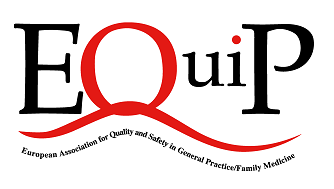“Primum non nocere” (Do not harm) has been for more than 2500 years one of the most known principles of medicine. Already in the Greek period and from then on, for ages, doing no harm to the patient has been the priority of doctors. In 1999 the IOM institute published its report ‘to err is human: Building a safer health system’ and now 25 years later the topic still is very important. It is a cornerstone of a health system of high quality. A lot of reports have been published since then, many of them about hospital care.
EQuiP (the European Association on Quality and Safety in General Practice/Family Medicine) now invites you to participate in a conference on Patient Safety in Primary Care in Prague, 22-23 April 2016. Read much more about EQuiP here: http://equip.ch/
If you are an expert, you are very welcome to share the experience, project, research, knowledge in your practice, university, college, regional organisation. If you want to learn about Patient Safety and what it is all about in primary care, you should be there to become an expert. EQuiP has a tradition of plenary sessions with international experts, very interactive workshops and smaller groups to deepen knowledge and share your vision on this topic.
- What is the role of the doctor and of the patient?
- How can the organisation of the health system and of your practice assure safer care?
- How do you learn from your faults and make sure they don’t happen again?
- How important is a healthy doctor for safe care?
- Can the computer help or be a threat?
- Which faults are the most important in general practice?
- Are vulnerable patients more at risk then others?
- Can we teach about safe care to students and trainees?
These and a lot of other related topics can be addressed. Send in your abstract no later than 15 January 2016 via the dedicated conference website: http://www.equip2016.cz/
The organising committee looks forward to your abstracts to make this congress a life-changing experience towards safer care for all participants and their patients.
